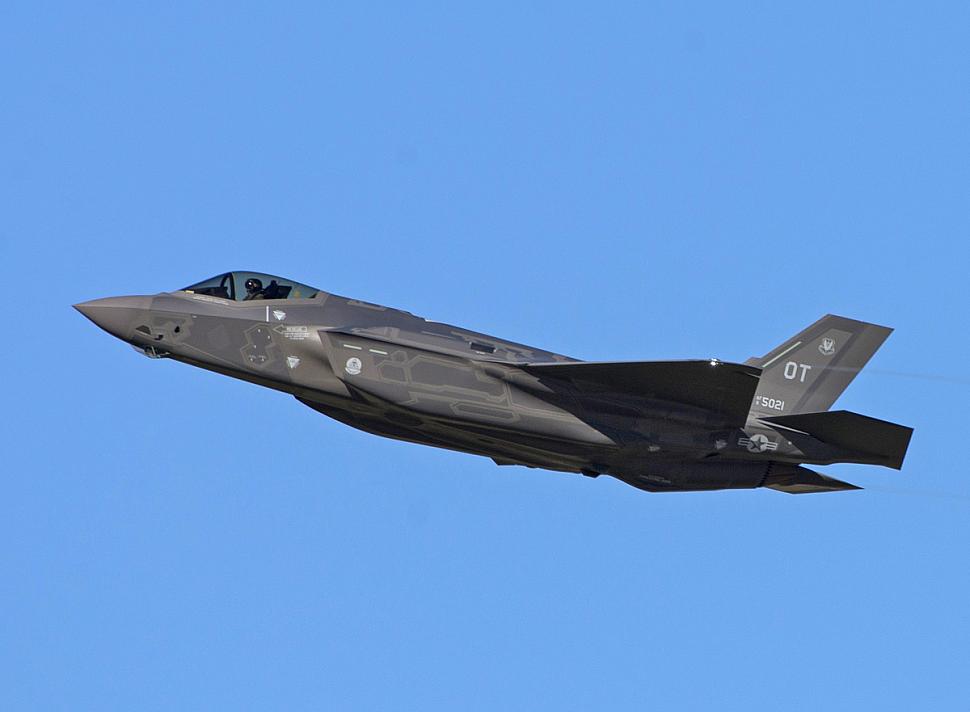Fighter Jet News
F-35 Lightning II News
Turkey commits to order first two F-35 fighter jets
May 7, 2014 (by
Lieven Dewitte) -
Turkey has recommitted to the purchase of an initial two Lockheed Martin F-35A Lightning II aircraft, Turkey's undersecretary for state-run defense said in a statement on May 6th. The delivery of the first two F-35s is scheduled to take place in 2018.
Turkey initially ordered two aircraft in January 2012, before postponing this purchase a year later, citing delays and cost growth within the F-35 program. Reportedly there were also issues with technology transfer on the integration of locally developed weapons systems, which have now been resolved.
Turkey still foresees to purchase 100 F-35A jets for $16 billion as part of the System Development and Demonstration (SDD) phase.
The first two F-35A Block-3F aircraft will be ordered under Low Rate Initial Production-10 (LRIP-10).
The Turkish Undersecretariat for Defence Industries (SSM) will perform necessary activities for the establishment of the final assembly and check-out line and a depot level maintenance center for the F135 engine within Turkish local industry and Turkish Air Force structures. Turkey aims to provide service to all F-35 users around the region via these facilities.
The issue of the integration of locally developed missiles are being discussed by the SSM, which has also been negotiating with F135 manufacturer Pratt & Whitney over the establishment of an engine line.
The U.S., U.K., Italy, Australia, Canada, Norway, Denmark, the Netherlands, and Turkey are participants in the active development of the Joint Strike Fighter program. A few weeks prior to Turkey's decision, Australia announced that it had committed to buying a total of 72 F-35s, down from a 2009 plan to purchase about 100. Moreover, South Korea's arms procurement agency also announced in March that it would buy 40 F-35s.
In addition, the U.S. Air Force is also expected to reach an agreement with both Lockheed Martin Corp and engine-maker Pratt & Whitney by the end of May for the next order of fighter planes.
The JSF program is about 70 percent over budget though and years behind schedule, having been plagued by technical problems. Skeptics say it still faces big challenges, including completing the software needed to integrate weapons on the jet.
Turkey still foresees to purchase 100 F-35A jets for $16 billion as part of the System Development and Demonstration (SDD) phase.
The first two F-35A Block-3F aircraft will be ordered under Low Rate Initial Production-10 (LRIP-10).
The Turkish Undersecretariat for Defence Industries (SSM) will perform necessary activities for the establishment of the final assembly and check-out line and a depot level maintenance center for the F135 engine within Turkish local industry and Turkish Air Force structures. Turkey aims to provide service to all F-35 users around the region via these facilities.
The issue of the integration of locally developed missiles are being discussed by the SSM, which has also been negotiating with F135 manufacturer Pratt & Whitney over the establishment of an engine line.
The U.S., U.K., Italy, Australia, Canada, Norway, Denmark, the Netherlands, and Turkey are participants in the active development of the Joint Strike Fighter program. A few weeks prior to Turkey's decision, Australia announced that it had committed to buying a total of 72 F-35s, down from a 2009 plan to purchase about 100. Moreover, South Korea's arms procurement agency also announced in March that it would buy 40 F-35s.
In addition, the U.S. Air Force is also expected to reach an agreement with both Lockheed Martin Corp and engine-maker Pratt & Whitney by the end of May for the next order of fighter planes.
The JSF program is about 70 percent over budget though and years behind schedule, having been plagued by technical problems. Skeptics say it still faces big challenges, including completing the software needed to integrate weapons on the jet.
Related articles:
Forum discussion:
Tags
- Northrop Grumman-First F-35 parts from Turkish supplier ( 2009-03-07)
- Purchase of F-35 by Turkey one step closer ( 2008-03-28)
- Turkey to buy 100 F-35 jets? ( 2006-03-29)
- F-35 to bring 5th generation capabilities to Turkish Air Force ( 2005-09-29)
- Turkey joins F-35 JSF development effort ( 2002-07-11)
- F-35 Lightning II news archive
Forum discussion:
- Turkey to order first F-35s ( 62 replies)
Tags

